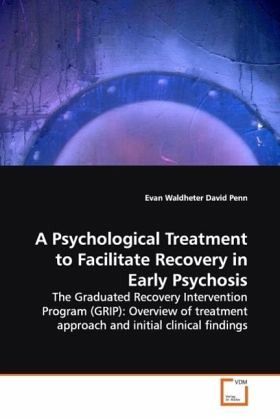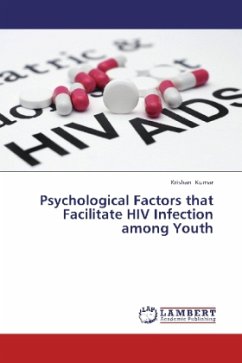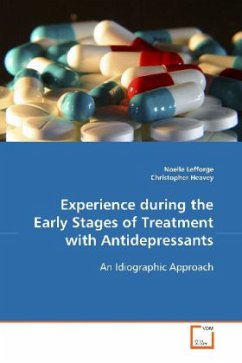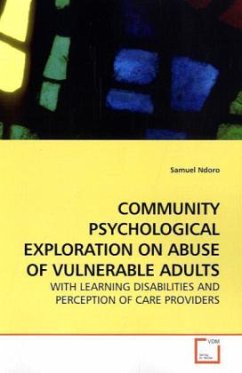
A Psychological Treatment to Facilitate Recovery in Early Psychosis
The Graduated Recovery Intervention Program (GRIP): Overview of treatment approach and initial clinical findings
Versandkostenfrei!
Versandfertig in 6-10 Tagen
32,99 €
inkl. MwSt.

PAYBACK Punkte
16 °P sammeln!
Despite the effectiveness of medication in reducing symptoms in people who have experienced a first episode of psychosis, persistent functional impairments are common, and are associated with an increased risk for relapse and a poor long-term prognosis. Adjunctive psychosocial interventions are needed to address these functional impairments and to assist with improving illness self-management and psychological adjustment.The Graduated Recovery Intervention Program (GRIP) is a novel cognitive-behavioral therapy program designed to facilitate symptomatic and functional recovery in people who hav...
Despite the effectiveness of medication in reducing
symptoms in people who have experienced a first
episode of psychosis, persistent functional
impairments are common, and are associated with an
increased risk for relapse and a poor long-term
prognosis. Adjunctive psychosocial interventions
are needed to address these functional impairments
and to assist with improving illness self-management
and psychological adjustment.
The Graduated Recovery Intervention Program (GRIP)
is a novel cognitive-behavioral therapy program
designed to facilitate symptomatic and functional
recovery in people who have experienced an initial
episode of psychotic illness. Above all else, GRIP
aims to help people to develop increased self-
efficacy and hope, and to move forward by setting
and achieving personally meaningful goals.
In this book, the treatment development process of
GRIP is described. An overview of the treatment
approach, including specific treatment phases and
prescribed interventions, is provided. Finally,
data from an open feasibility trial of this
intervention are presented.
symptoms in people who have experienced a first
episode of psychosis, persistent functional
impairments are common, and are associated with an
increased risk for relapse and a poor long-term
prognosis. Adjunctive psychosocial interventions
are needed to address these functional impairments
and to assist with improving illness self-management
and psychological adjustment.
The Graduated Recovery Intervention Program (GRIP)
is a novel cognitive-behavioral therapy program
designed to facilitate symptomatic and functional
recovery in people who have experienced an initial
episode of psychotic illness. Above all else, GRIP
aims to help people to develop increased self-
efficacy and hope, and to move forward by setting
and achieving personally meaningful goals.
In this book, the treatment development process of
GRIP is described. An overview of the treatment
approach, including specific treatment phases and
prescribed interventions, is provided. Finally,
data from an open feasibility trial of this
intervention are presented.












